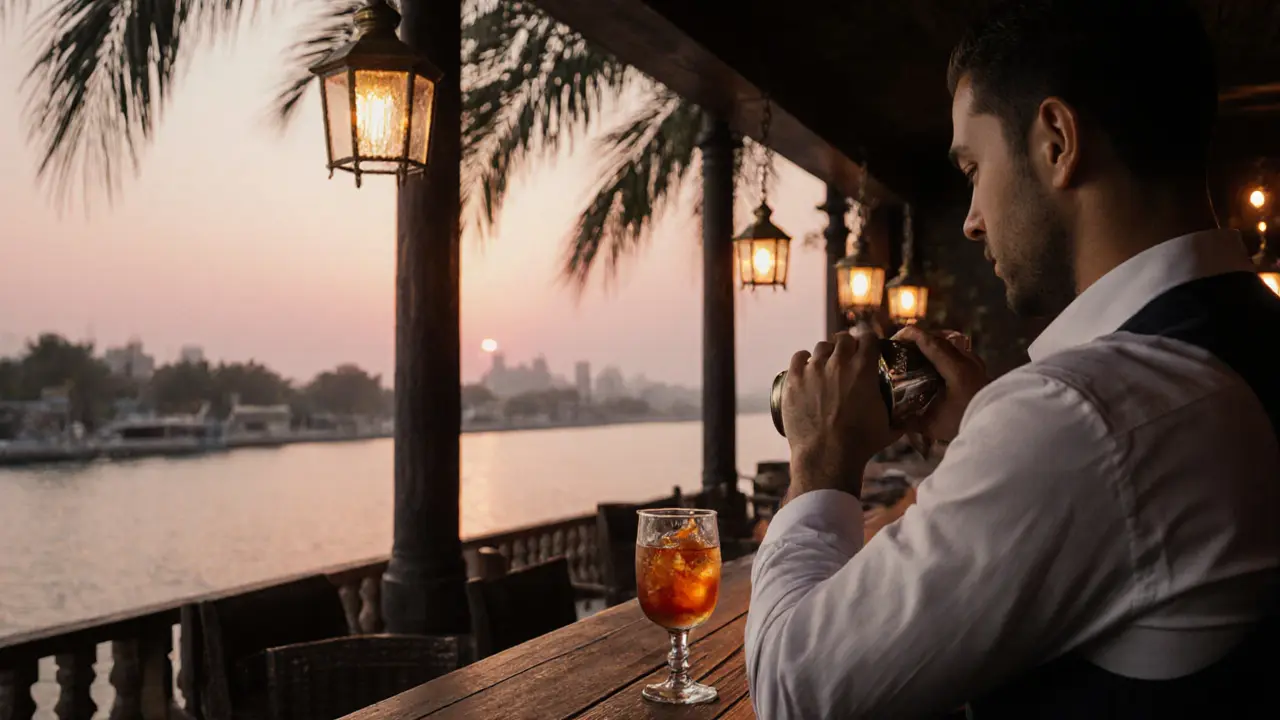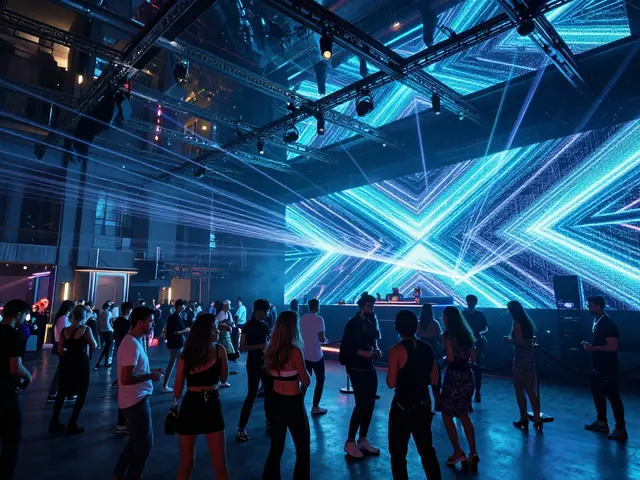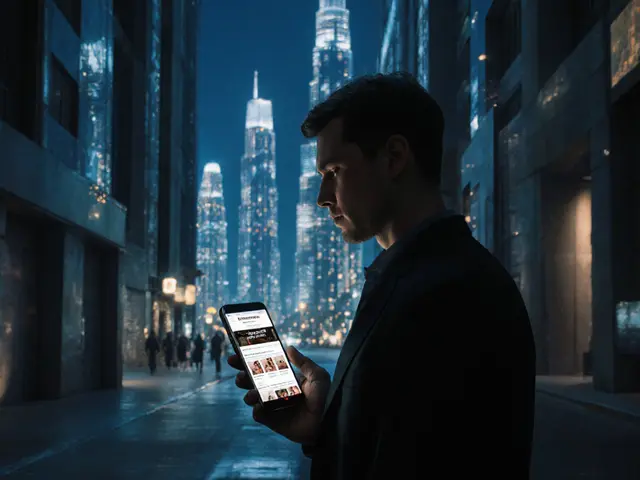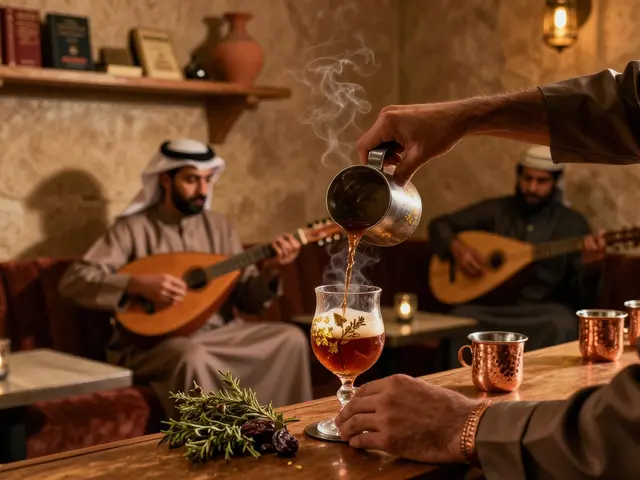When you stroll through Dubai’s glittering skyline, it’s easy to think the city’s nightlife is all neon and new‑age concepts. Yet, hidden in the marble corridors of older hotels and the breezy decks of long‑standing beach venues, you’ll find a handful of historic cocktail lounges Dubai residents and visitors swear by. These spots blend the city’s rapid growth with stories that began decades ago, offering a sip of nostalgia alongside today’s mixology trends.
Historic cocktail lounge is a drinking venue that preserves its original atmosphere, decor, and signature drinks while adapting to modern tastes. In Dubai, such lounges often sit inside heritage hotels, waterfront clubs, or legacy expatriate hangouts, each carrying a unique backstory that reflects the emirate’s cultural evolution.
Why Dubai’s Cocktail History Matters
Dubai’s market for nightlife exploded in the early 2000s, but before the skyscrapers, a modest expatriate community gathered in a few modest bars. Those early spaces became meeting points for traders, sailors, and oil‑industry workers, shaping a cosmopolitan palate that still influences today’s cocktail menus. Understanding this lineage helps you appreciate why a particular lounge feels timeless-even when a bartender is shaking a foam‑capped martini.
Top Historic Cocktail Lounges to Explore
-
The Bar at Dubai Creek Golf & Yacht Club (opened 1993) sits on the creek’s historic waterfront. The venue’s teak deck and vintage brass lanterns echo the club’s sailing heritage. Try the "Creekside Old Fashioned," a bourbon‑based cocktail infused with dates and a dash of orange bitters-a nod to regional flavors.
-
Barasti Beach Bar launched in 1997 at the Jumeirah Beach Hotel. Its open‑air vibe, sand‑covered floors, and reggae‑infused playlists made it the go‑to spot for expats during the pre‑Skyscraper era. The signature "Barasti Breeze" mixes white rum, fresh mint, and a splash of tamarind syrup, capturing the Gulf’s breezy feel.
-
The Irish Point Bar opened its doors in 2001 within the InterContinental Dubai Marina. Though younger than some, it quickly earned a reputation for preserving classic Irish pub culture, complete with dark wood, stained‑glass accents, and a curated spirits list. Its "Emerald Manhattan" swaps rye for Irish whiskey and adds a whisper of rose water.
-
The Gazebo Bar at Jumeirah Beach Hotel debuted in 1997 alongside the hotel’s iconic wave‑shaped roof. Its sunrise brunch became legendary, and the night‑time lounge kept the same airy feel with hanging lanterns. The "Sunrise Sipper" combines gin, fresh grapefruit, and a drizzle of local honey.
-
Low Key Cocktail Club opened in 2005 inside the Alserkal Avenue art district. The industrial brick walls and low‑lit jazz corners honor the early 2000s underground scene. Their "Desert Rose Martini" blends vodka, rose water, and a whisper of cardamom, reflecting the region’s aromatic heritage.
Quick Comparison of the Must‑Visit Historic Lounges
| Venue | Year Opened | Location | Signature Cocktail | Seating Style |
|---|---|---|---|---|
| The Bar at Dubai Creek Golf & Yacht Club | 1993 | Dubai Creek | Creekside Old Fashioned | Teak deck & lounge chairs |
| Barasti Beach Bar | 1997 | Jumeirah Beach | Barasti Breeze | Beach‑side cabanas |
| The Irish Point Bar | 2001 | Dubai Marina | Emerald Manhattan | Dark‑wood booths |
| The Gazebo Bar | 1997 | Jumeirah Beach Hotel | Sunrise Sipper | Open‑air lounge |
| Low Key Cocktail Club | 2005 | Alserkal Avenue | Desert Rose Martini | Industrial brick & sofas |
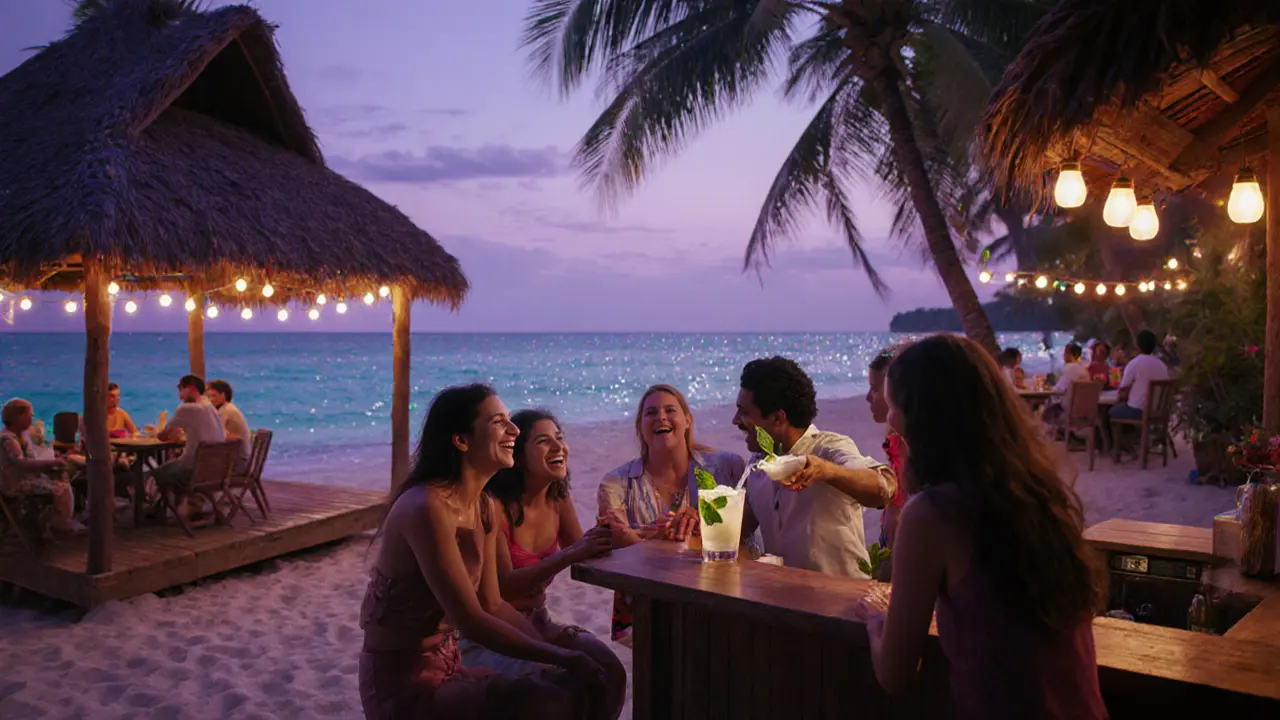
How to Experience These Venues Like a Local
- Visit during off‑peak evenings (weekdays after 9pm) to enjoy the intimate ambience without the tourist rush.
- Dress smart‑casual: many historic lounges prefer collared shirts for men and elegant dresses or jumpsuits for women.
- Ask the bartender for the “house story.” Most places love sharing the origin of their signature drink, which can lead to a richer tasting experience.
- Pair with a local palate‑friendly bite: think dates with cheese at the Creek Bar, or a shrimp skewer at Barasti.
- Respect local customs: alcohol is served only to those over 21 with valid ID, and public intoxication is discouraged.
The Evolution of Cocktail Culture in Dubai
From the early 1990s, when expat engineers would meet after work at a modest hotel bar, to the present day’s craft‑cocktail renaissance, Dubai’s drinking scene mirrors the city’s own transformation. The first wave introduced classic spirits-gin, whiskey, rum-served in simple highballs. As the hospitality sector grew, mixologists began experimenting with regional ingredients like saffron, rose water, and charred dates, creating a distinct Emirati cocktail identity.
Today, you’ll find molecular techniques (smoked glass, foams) alongside heritage décor. This blend of old and new is exactly what makes historic lounges stand out: they retain the original vibe while allowing bartenders to showcase contemporary flair.
Preserving History While Embracing the Future
Many of Dubai’s longstanding venues have undertaken renovations that respect their architectural roots. For instance, the Gazebo Bar retained its original wave‑shaped roof while integrating LED lighting that highlights its evening ambience. The Bar at Dubai Creek Golf & Yacht Club upgraded its sound system but kept the teak deck untouched, preserving the maritime feel.
Community events-like vintage cocktail nights and heritage storytelling evenings-help keep the history alive. If you’re a resident or a regular visitor, joining these events not only expands your palate but also supports the cultural memory of Dubai’s nightlife.
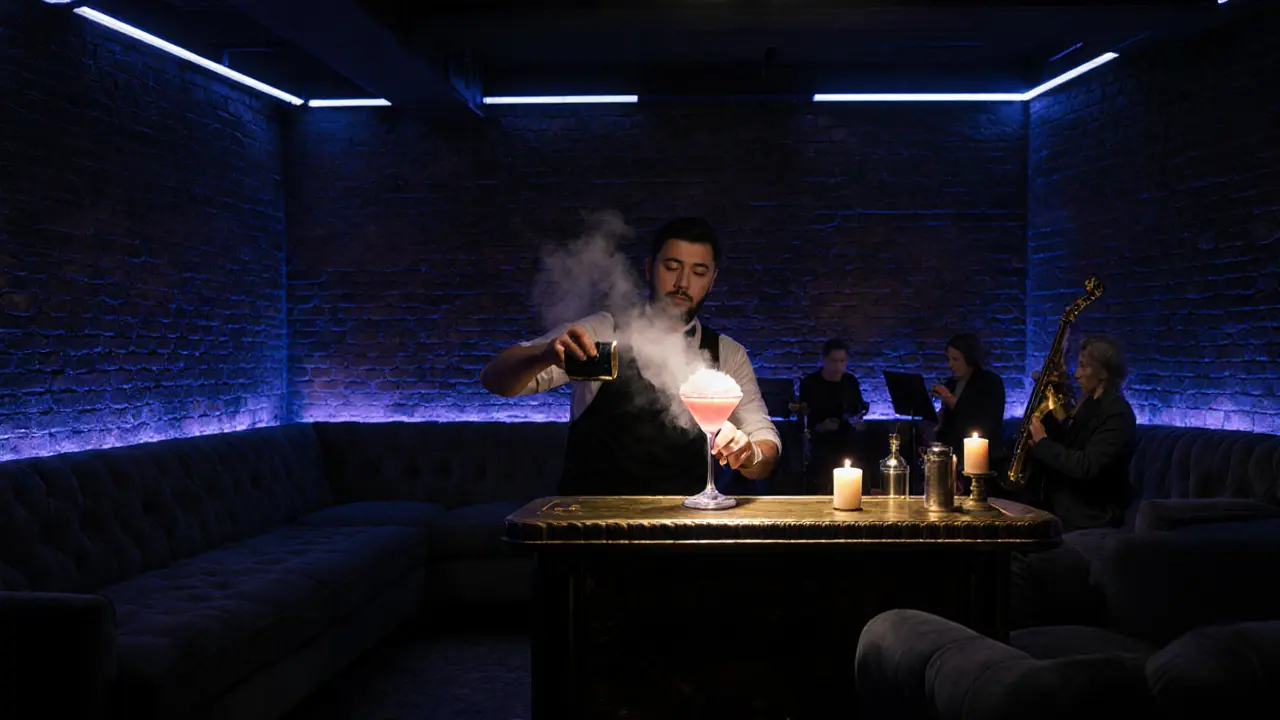
Practical Tips for Expats, Tourists, and Business Professionals
- Timing: Weekday evenings are quieter; Friday‑Saturday brunches often feature extensive non‑alcoholic mocktail menus if you’re not drinking.
- Reservations: Most historic lounges accept bookings via phone or WhatsApp; a quick message the day before secures the best spot.
- Transport: Use Dubai Metro (Red Line) to reach the Creek Bar or the Marina; for beach venues, ride‑hailing services are the most convenient.
- Budget: Expect cocktail prices between 55-85AED; signature drinks might run higher due to premium ingredients.
- Networking: Business professionals often meet at the Irish Point after meetings; the lounge’s quiet corners make it ideal for informal discussions.
Future Outlook: What’s Next for Dubai’s Historic Lounges?
As Dubai continues to host global events-Expo 2025 just wrapped, and the upcoming World Expo 2030 preparations are already underway-historic lounges are positioning themselves as cultural ambassadors. Expect more collaborations with local chefs, pop‑up art installations, and limited‑edition drinks that celebrate UAE heritage months.
In short, whether you’re a local who grew up with the first cocktail wave or a newcomer curious about the city’s past, these lounges offer a bridge between eras. So next time you’re looking for a night out, skip the flashy new club and step into a place where the clink of glasses tells a story.
Frequently Asked Questions
Which historic lounge is best for a romantic evening?
The Bar at Dubai Creek Golf & Yacht Club offers a quiet teak deck overlooking the water, perfect for intimate conversations. Their Creekside Old Fashioned pairs beautifully with a sunset view.
Do I need a reservation for Barasti Beach Bar?
Reservations are recommended during weekends and holiday seasons, especially for the cabana areas. A quick WhatsApp to the venue secures your spot.
Are historic lounges family‑friendly?
Most venues have designated lounge areas that are suitable for families during daytime. However, the alcohol service is restricted to guests over 21 with valid ID.
What local ingredients are commonly used in Dubai’s classic cocktails?
Date syrup, tamarind, rose water, saffron, and locally sourced honey appear frequently, adding a distinct Middle‑Eastern twist to familiar spirit bases.
How can I learn cocktail‑mixing skills at these historic venues?
Several lounges, such as Low Key Cocktail Club, host monthly mixology workshops where you can learn to craft their signature drinks under the guidance of experienced bartenders.
